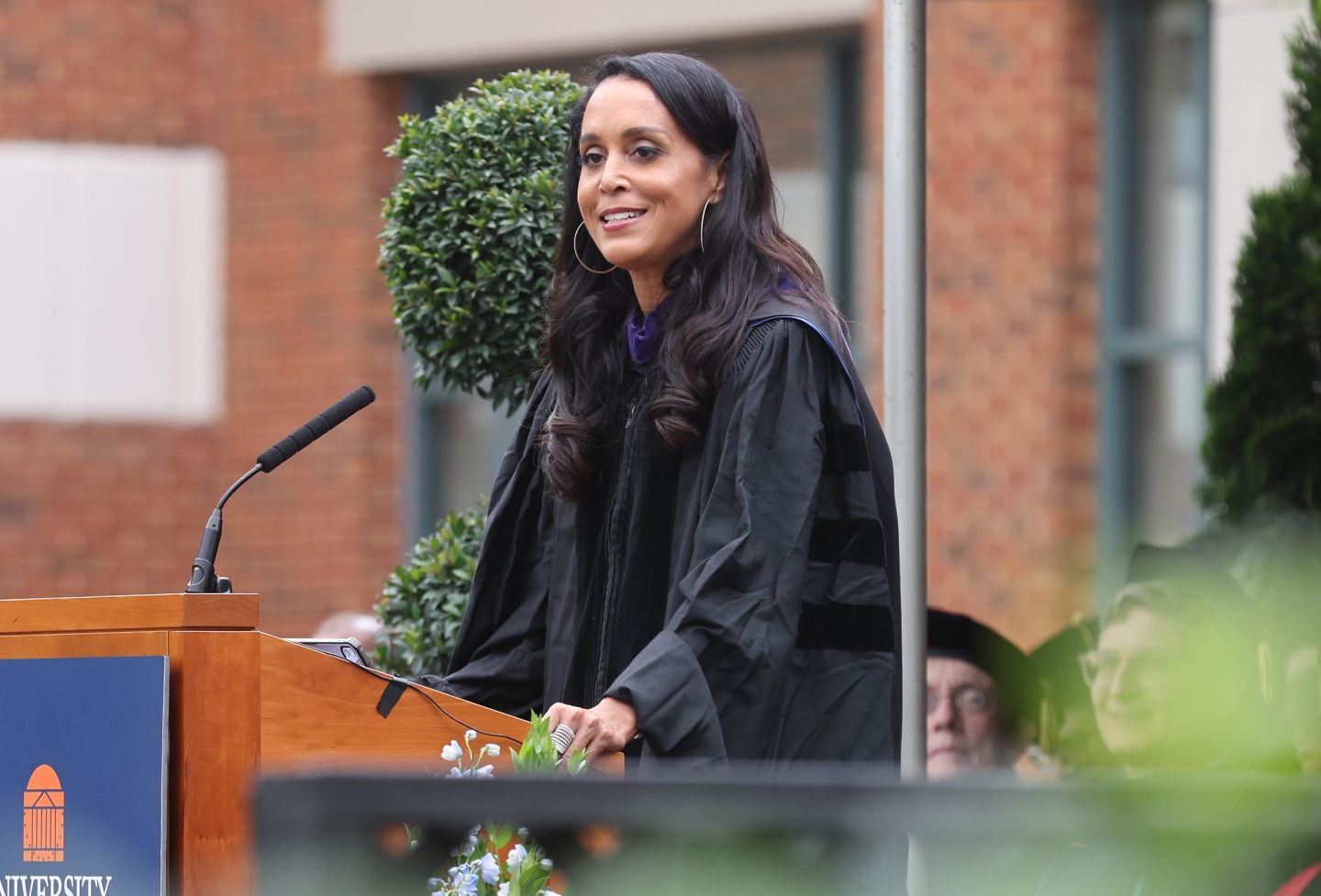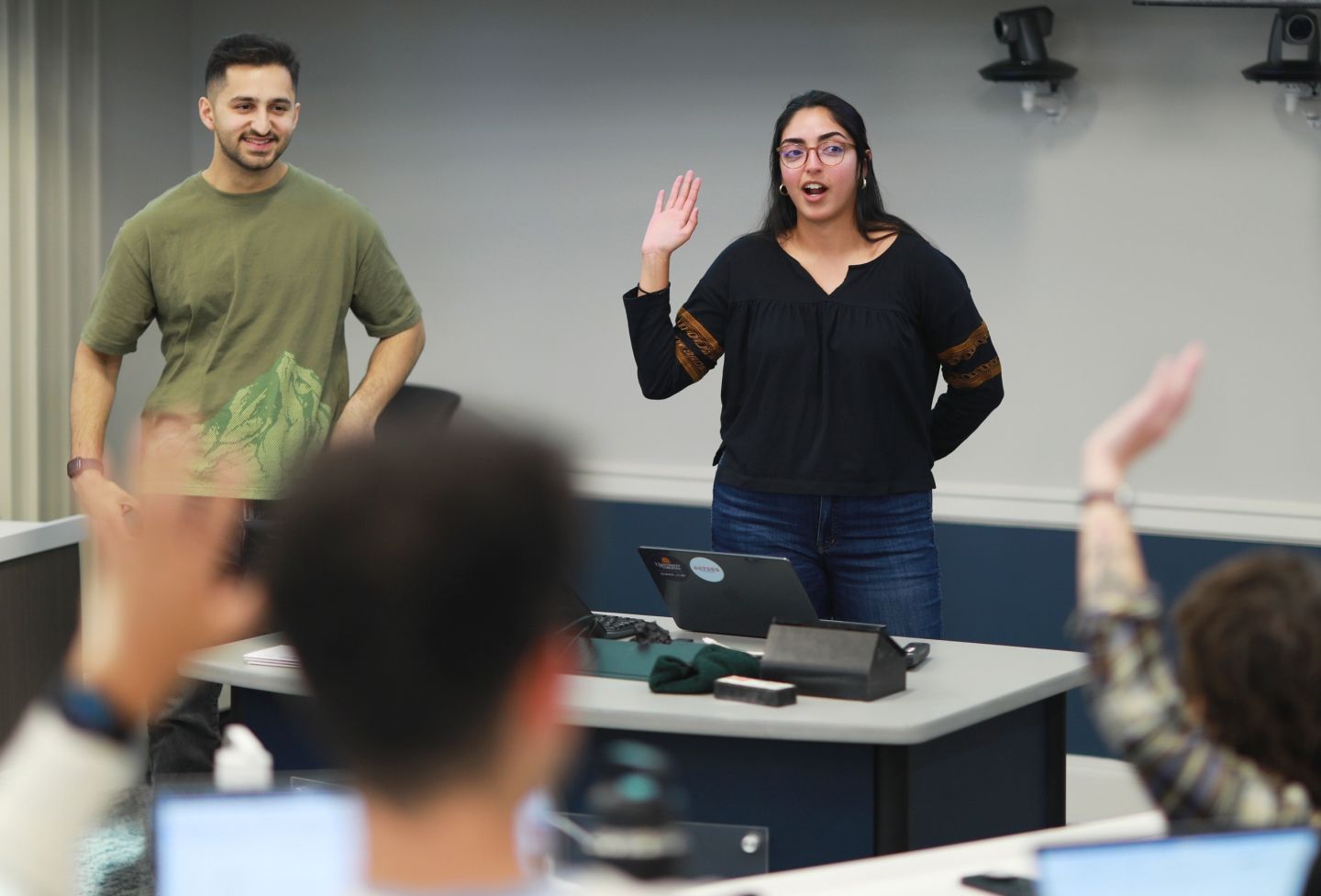Attorney Jim Neale, a 1998 graduate of the University of Virginia School of Law and a partner with McGuireWoods in Charlottesville, has been volunteering his legal expertise with the school’s Innocence Project for the past five years on behalf of a Norfolk man in prison for a murder his attorneys say he didn’t commit.
With discovery now granted in the case — a rare victory for habeas claims — Neale hopes to help prove that suppressed evidence led to the wrongful conviction.
Arsean Hicks, the Innocence Project’s client, was convicted for the 1999 homicide of an off-duty police officer at the Open House Diner during a masked robbery. Hicks was 16 when the crime occurred. He claims that he wasn’t there, and that his coerced confession was taken without an attorney or his mother or guardian present.
Hicks learned after his conviction that one of his alleged accomplices in the robbery recorded a statement about clothing worn by the shooter that, if true, would be exculpatory.
A participant in the crime separately provided an affidavit saying that Hicks was not the shooter, and the officer who elicited Hicks’ confession, Robert Glenn Ford, went to prison on corruption charges stemming from other cases he handled.
After years of unsuccessful attempts to get a court to re-examine the evidence, Hicks won an important victory in Norfolk Circuit Court on Aug. 19. Judge Charles James Maxfield (now retired and acting in a substitute capacity) denied the commonwealth’s motion to dismiss Hicks’ habeas petition, granted Hicks the ability to conduct discovery and expressed his intent to hold an evidentiary hearing, which would test the constitutionality of Hicks’ continued detention.
Neale, a trial attorney, successfully argued a challenge to the state exculpatory evidence law four years ago at the Supreme Court of Virginia, ensuring that newly discovered evidence previously suppressed by a prosecution must be considered, no matter when it is found.
Neale estimates that the project’s fact-finding could take about six months to complete.
He recently answered some questions about the case and his role in working with the Innocence Project at UVA Law.
Can you reiterate some of the relevant background and details of the case?
Well, it’s a really unfortunate home situation that [Hicks] was in. There was essentially a series of young men who were [living in the residence], all without fathers, I think a lot without mothers, sort of loosely under guardianship. And none of them was in school. They were kind of running around completely on their own to subsist.
And one of the ways they were doing that was robbing pizza delivery men. So there was a series of armed robberies leading up to the Open House Diner crimes. They involved the same weapon, and they involved some of the same people. And so Arsean pled guilty to one of those pizza robberies that occurred earlier in the evening the Open House Diner was robbed.
Two of the young men came into the diner posing as customers. A third, masked man then burst in, brandishing a weapon and demanding cash. Tragically, an off-duty federal police officer attempted to intervene, and the gunman shot and killed her. As I recall, the Open House Diner murder/robbery was about 2 a.m., and the pizza robbery that Arsean plead guilty to was four or five hours previous to that, [at about] 9:30 p.m. So he was essentially charged with both crimes: robbery, the use of or display of a firearm, capital murder, a second count of use or displaying a firearm, and conspiracy to commit robbery and murder. And that was all as a 16-year-old.
The detective investigating the crimes is infamous for eliciting false confessions from young defendants such as the “Norfolk Four,” who were young Navy sailors wrongly accused of rape and murder. Arsean has always maintained that the confession Detective Ford elicited from him — without an attorney, his mother or his guardian present — was a false confession. That detective is now in federal prison for selling favors from the witness stand.
Arsean was transferred from the juvenile court to the circuit court for trial as an adult. No witness testified that Arsean was the gunman, and there was no forensic evidence tying him to the crimes, as opposed to any of the other young men in the house in which they all lived. The conviction appears to have depended entirely upon the confession Detective Ford elicited.
Arsean denies all of the Open House Diner crimes. But he received a combined sentence for the two crimes of 150 years with, I believe, 40 of that suspended. So he’s essentially got a life sentence without parole for the crimes.
Why is the discovery process so important?
So first of all, it’s very unusual to get it [after a verdict is rendered]. By no means have we won the case. But we have an opportunity now to dig in beyond the affidavits that the co-defendants and other suspects are providing us and see if we can find evidence in the court files, and in the police files, and in the investigation files to support what Arsean and what the co-defendants have been saying for 20 years, which is that he’s not the right guy.
And normally, we just don’t get that look. And there’s a presumption of finality, which I understand and I respect, that normally attaches to criminal convictions. But it all too often deprives worthy habeas petitioners of the chance to demonstrate that their detention’s illegal, that they were put in jail by a crooked cop. And I understand that almost every criminal defendant, almost every person who’s been convicted of a felony files a habeas petition, and many, many of them are without merit.
But the challenge as a lawyer on either side of the case, whether you’re the state contesting it, or whether you’re the habeas petitioner’s attorney — and certainly the challenge for the court — is to get beyond those numbers and give every case the attention it deserves. Because as the Norfolk Four case [that of four Navy men who were falsely convicted in a rape-murder, due in large part to confessions coerced by Detective Ford] proved, and as other habeas petitions have proven through the clinic at UVA, there are [other] meritorious claims out there. And if we are blinded by the presumption of finality, and if we give the state the benefit of the doubt every time it secures a jury verdict, no matter what the detective proves to be after the fact, then we’re sacrificing some really important principles for the sake of finality, which I think is just not the right answer.
How often does suppression of evidence happen? Is this a major ongoing problem, or do you feel like it’s more confined?
I’d like to say that it’s extremely rare. And I do think that the majority of prosecutors and law enforcement certainly attempt to satisfy their obligations under Brady [v. Maryland]. And we’re definitely, I think, much better off now than we were a generation ago in that regard. But I think, unfortunately, suppression still happens.
And I think this is a case where there’s strong evidence that it did. And there’s evidence from several of the people, several of the suspects involved in the crimes, that there was not just suppression, but that there was physical violence during the interrogations. And whether it’s prevalent and occurs frequently or whether it’s one bad cop in a big city like Norfolk, no matter how infrequent it is, it can’t be tolerated. And so when we do have evidence that it occurred, regardless of your role in the system, we have an obligation to look at it and try to correct it if we can.
Can you speak to the value of the pro bono relationships that you have with the Innocence Project and UVA Law?
Arsean’s case, like a lot of these, spans many, many years. We probably have students from up to four academic years now who have actively participated and assisted in investigating and researching and writing habeas petitions. And the work that Deirdre Enright and Jenny Givens do at the clinic — and now they’re very capably assisted by Juliet Hatchett — is really first rate.
[McGuireWoods’ support for pro bono] is a great opportunity to step outside of your normal practice, and to work for clients who are very deserving, and who have been very carefully screened by the clinic, and to have all of the enthusiasm and the energy and exuberance of law school students behind it. So we really benefit in that regard.
It’s easy in the practice of law after a couple of decades to get into a routine, and to do things at your own pace and in your own style. And it’s a great refresher to work with young students again who see things differently, and who approach problems enthusiastically, and who always want to help. This is the kind of reason we all went to law school. And when you don’t get to do it every day, it makes an opportunity like this all the more remarkable.
Related Stories
Founded in 1819, the University of Virginia School of Law is the second-oldest continuously operating law school in the nation. Consistently ranked among the top law schools, Virginia is a world-renowned training ground for distinguished lawyers and public servants, instilling in them a commitment to leadership, integrity and community service.


